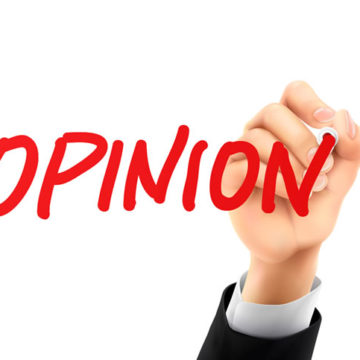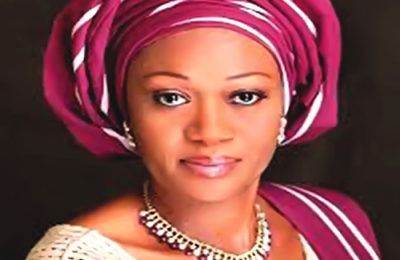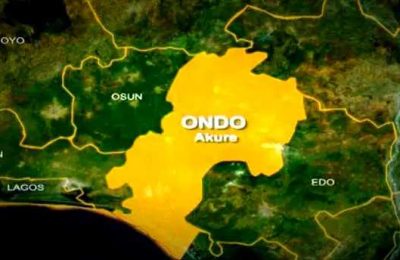THE feud between elder statesman, Chief Afe Babalola and civil right activist, Mr. Dele Farotimi, is perhaps the most significant discourse that postcolonial Nigerian state has thrown up for the moment, one in a class of those grand defining disputations that sure will gather dust which will take some time to abate. And it is one case that is fraught with all sorts of legal, jurisprudential, moral and political traps and complexities that speak to more than the trivial interventions—leveraged around the David and Goliath motif—that are attending to the matter. Those who have been able to go beyond the surface of the case will agree that it goes to the very foundation and founding of the Nigerian society, and the fundamental objective of crafting a good and just society for Nigerians. That the issue revolves around the dispensation of justice immediately alerts us to the deep insinuation about the idea of social justice itself, and how the conception of fairness could be written into the very fabric of the Nigerian society.
And yet, the complexity of the case is what makes it a case that is too critical for a public servant like me to dabble in. (Un)fortunately, my intellectual maturation, my political science education and my professional endeavor in institutional reform advocacy have prepared me to intervene in this critical matter. I have always been involved with Nigeria, and with reflective thoughts about how to reconstitute her greatness. Three learning encounters with three world-historic icons configured my passion for wanting to see that Nigeria become a state we all can be proud of. The first came from my reading of Plato’s Republic. There is a reason that the entire treatise commenced with the question, what is justice? Justice was a fundamental issue in the decline of the ancient Athenian democracy that allowed Socrates to be judicially murdered. The second learning derived from Wole Soyinka’s dense prison memoir, The Man Died. And like most who have read it, Soyinka was troubled by the idea of justice: “For me, justice is the first condition of humanity.”
By the time I would be coming to Thomas More’s Utopia, I was already apprised of the connections between my political science education, my professional endeavor as a public servant, and the key elements of institutional reform as a cogent framework for transforming Nigeria.
From Plato to Soyinka, we have a trajectory of political reflection that takes justice seriously as the basis for organizing a just society. This is part of the intellectual frameworks for my undergraduate and graduate studies at the Department of Political Science, University of Ibadan. In one of those explosive seminar classes that played some fundamental role in my intellectual maturation in the graduate school, I had proposed an argument through a seminar paper titled: “Is a revolution an option to fix Nigeria?” The topic was meant to titillate the collective yearning for revolution that would serve as the ultimate mechanism for social change that will flush off all traces of corruption and degeneration in postcolonial Nigeria. Revolutions seem to possess some allure for the masses because they constitute a framework of justice that the constitutional justice mechanism might not be able to handle.
However, as Wole Soyinka, Thomas More, Martin Luther and even Galileo Galilei would realize, the need for radicalism is balanced by the force of establishment orthodoxy. The Nigerian predicament has, as a fundamental foundation, a lot to do with the connection between governance failure and injustice in terms of the persistent and protracted class strife between the haves and the have-nots, between the rich and the poor, indeed, in the final analysis between the government and the governed. And in the case between Afe Babalola and Dele Farotimi, the issues boil down to the administration of justice and the entire edifices and institutions of social justice and the rule of law in Nigeria. And so, in outlining the key issues involved in the matter, we must be careful enough to read between the lines and the noises of analysts who are eager to queue behind their favored protagonists.
First things first. Let us remove the surface debris. Indeed, and in this case, the debris points us in the direction to look for the rot within the matter. First, there is the matter of civil defamation and its legal ramifications. And second, there is the issue of the legal and moral protocols involved in dealing with the pursuit of redress by someone who knows and understands the law. Barrister Farotimi has a legal right to seek redress in court. Chief Babalola has a legal right to defend his reputation in court. In raising the specter of legal prosecution against defamation, I see Chief Babalola as being at the forefront of gatekeeping the legal establishment in terms of what is and is not permissible or possible under the law and its conservative tenets. If you are hurt or an injustice has been done to your person, then the best place to seek redress is not the court of public opinion but the constitutional legal establishment. Unfortunately for him, Barrister Farotimi’s book, Nigeria and Its Criminal Justice System, impugned the entire legal and judicial establishment up to its apex institution, the Nigerian Supreme Court. However, does radicalism preclude moral decency?
A book could be written and allegations made without the complement of atrocious language. Or maybe the rot in the judicial system, and the need for a revolution preclude any niceties, especially with those who are allegedly at the forefront of perpetuating and protecting the rot. But then, how to prove what we all considered to be the norm in terms of legal prosecution of judicial corruption remains a hanging question. No matter how we look at what we are calling the surface debris, we are redirected deeper and deeper into what lies beneath the surface.
The ultimate question is that between Chief Afe Babalola and Barrister Dele Farotimi, what we are asked to contend with is the state of the Nigerian judiciary and the corrupt impediment of social justice, especially for an average Nigerian. What Barrister Dele Farotimi said about the Nigeria judicial system is not new. We are all familiar with the rot within the system. Indeed, this is not the first time an alarm would be raised about what we are all familiar with. Indeed, as far back as 1999, The News magazine carried a most unsalutary headline, “Crooks on the Bench: An Expose on the Rot in the Judiciary.” The magazine headlined the names of 47 judges indicted for judicial corruption. What is new is that Dele Farotimi dared to go so far as to mention specific names, and to confront the big players in the legal establishment. And he did this in a most scurrilous manner targeted at getting maximum traction and attention. It is as if Mr Farotimi, through the public sphere, is throwing the gauntlet to every Nigerian and challenging us on our collective responsibility to clean the Augean stable.
If Barrister Farotimi cannot prove his allegations in court, it would not mean that his charges are false. It might only imply that the system which is supposed to guarantee justice has become too corruptly dense to achieve its mandate. But there is also the chance that since the entire judicial system cannot be tarred so broadly with the same brush, Farotimi’s allegation might receive a dispassionate hearing that might deliver justice as we expect it. This might be a tall expectation. Nigeria’s postcolonial predicament has inevitable consequences on the capacity of the judicial system to facilitate the delivery of justice. And this failure also complicates the capacity of the Nigerian state to deliver on its social contract to Nigerians. This is what makes the Babalola-Farotimi case too complex to be decided either in the constitutional court or the court of public opinion. The burdens of postcolonial disruptions that the Nigerian judicial system carries are enormous: judicial corruption, miscarriage of judgments, executive lawlessness, delayed trial due to insufficient infrastructure, and financial dependence on the executive arm of government
To outline the fundamental challenges of the judicial system in Nigeria this way is not to give in to cynicism and a deterministic mindset that we might be caught in a vice that is inescapable. It is simply to say that the ongoing uproar between the two dramatis personae demonstrates that the court has been given a chance to reflect on the role that (in)justice plays in the fundamental understanding of the Nigerian postcolonial predicament and the capacity of a democratic system to correct itself. When Chief Afe Babalola and Barrister Dele Farotimi are given their day in court, we will have no choice but to trust that same judicial system to deliver unbiased judgment no matter our misgivings about how objective and untainted that judgment could be. This is just a way of saying that though our judicial system is not perfect; it is still the best that we have.
The last words on this reflection on the connection between the ongoing feud between Babalola and Farotimi and Nigeria’s postcolonial predicament must be given to Haile Sellasie, former emperor of Ethiopia: “Throughout history, it has been the inaction of those who could have acted; the indifference of those who should have known better; the silence of the voice of justice when it mattered most; that has made it possible for evil to triumph.
- Olaopa, Chairman, Federal Civil Service Commission and Professor of Public Administration, writes in via [email protected]
READ ALSO: Between Farotimi and Afe Babalola







